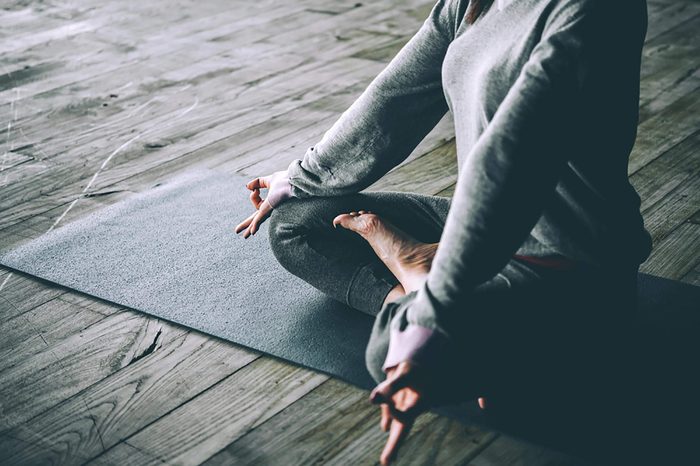The start of a new year allows you to look back on the past year and think about the life changes you would like to make. This period of reflection helps you to reassess how you spend your time and the choices you make. A better sense of clarity of our goals will help you successfully plan for the future. So yes, New Year’s resolutions are a way to help you set goals, but how often do you achieve them?
Here are the top 15 New Year’s resolutions and some tips for actually achieving them.

Get in shape
The most common New Year’s resolution has to do with getting in shape, according to a YouGov survey. If you’re trying to hit the gym to improve your health or tone your physique, you can avoid slacking off by enlisting a friend to exercise with you. Need additional motivation? Fitness technology can help you stay on track. Trackers can monitor s so many aspects of your health from sleep to steps. All of the information can help you be more aware and get closer to your fitness goals.

Lose weight
Spend any amount of time on Instagram and you won’t be able to avoid the avalanche of products and schemes promising quick weight loss. Although we know that the key to weight loss lies in diet and exercise, a 2012 study published in Obesity Reviews suggests that, while exercise is important for overall health and keeping weight off, it isn’t actually that useful for weight loss. The truth is exercise only accounts for a small portion of daily calorie burn. The bottom line: If you want to lose weight, focus on cutting calories. This is how doctors keep their New Year’s resolutions.

Enjoy life to the fullest
Typically, money goals are a priority in most of our New Year’s resolutions, but a 2018 survey conducted by GoBankingRates.com found that the top New Year’s resolution among respondents was “enjoy life to the fullest.” The key to enjoying life may lie not in making major life changes, but in actively enjoying your life as it is.

Spend less, save more
After the holidays, you’re probably looking to spend less to save more. To get your finances in order, consider setting a budget and then looking for ways to cut costs or make some extra money. Buy and sell clothes at consignment stores, consider refurbished electronics, buy produce when it’s on sale, and bundle your car, home, and life insurance. This is how much money your unhealthy habits may be costing you.

Spend more time with family and friends
Spending time with loved ones is great for your health and well-being, according to a 2019 study in PLoS One. The study found a person’s social circle, which was measured by inbound and outbound cell phone activity, was a better predictor of wellness, including stress, happiness, positive attitude, and self-assessed health than data on a fitness tracker, such as physical activity, heart rate and sleep. Set aside time each week to either call or meet up with a friend or family member. Take turns hosting dinner, or just get together for a walk. Friends far away? Set up a weekly Skype chat instead.

Get organized
Getting organized is a noble goal. You’re going to need some concrete strategies to follow through on this goal. Nicole Anzia, an organizing columnist for The Washington Post and founder of Neatnik.org, recommends avoiding impulse purchases so you don’t end up with more clutter, setting aside 10 minutes each day to filed and delete old emails, and setting up files to keep track of paperwork, such as medical bills, taxes, and home maintenance documents.

Learn something new
This is one of the most commonly broken resolutions. Learning new things can be frustrating, hard, and a drain on one’s time. Start off small. Instead of signing up for a language class, start out with a language-learning app such as Duolingo. And instead of resolving to master the art of French cooking, start by mastering a single French recipe, then build on your skills later on.

Travel more
Many of the most successful resolutions require planning and finding ways to stick to your goals. So if you want to travel more in 2020, be specific about where you want to go, when you want to go there, and what you’d like to do when you get there. Then start researching to find out what it’s going to cost, what you’ll need to bring, and how much time you’ll want to spend. From there, you can create a budget, start a travel fund, and let your friends and family know that you’re planning a fabulous trip. Letting others in on your plans will help keep you accountable.

Break your smartphone addiction
Don’t believe it’s possible? Cell phone addiction is real. The average person checks their phone a whopping 50 times a day, according to 2018 research from the Journal of Accountancy. If you’re ready to reclaim some of your time and break your digital addiction, you could go cold turkey and go back to using a bare-bones phone. If you’re more interested in moderating your usage, try turning off all non-essential notifications, and keeping your phone as far from you as possible, especially when you’ve come home from work. You can even give yourself set periods of time—as in established and timed—to check email, Facebook, etc.. This way, you don’t end up mindlessly playing on your phone for an hour (or more) when you only meant to give your feed a quick glance. Lastly, consider replacing your phone entirely. Grab a magazine or book instead.

Eat at home more
If you’re hooked on takeout, it’s probably taking a toll on your bank account and your health. Cooking at home is cheaper and better for your health than ordering in or eating out since you’re in charge of the ingredients. Then, stock your kitchen with the right tools and have some go-to weeknight recipes; that way you can take a lot of the time and frustration out of meal planning. Apps such as Yummly and Mealboard simplify the process by generating shopping lists and letting you filter recipes by prep time, nutrition, seasonality, and more.

Drink less
If you’d like to cut back on your alcohol consumption in the New Year, John C. Norcross, PhD, and author of Changeology: 5 Steps to Realizing Your Goals and Resolutions, recommends avoiding situations—like Bunco parties or happy hours with friends—that may tempt you into drinking too much. Instead, invite guests to your home for dinner so you can control how much alcohol is served, and how much you drink. And try ringing in the new year with a glass of alcohol-free champagne instead.

Stop smoking
According to the American Cancer Society, only seven percent of smokers manage to quit in any given attempt, but those odds improve dramatically when people combine counseling with anti-smoking medication. “People can mix and match and find a combination that works best for them,” said Yvonne Hunt, a program director at the National Cancer Institute’s tobacco control research branch.

Reduce stress
If you’re resolving to reduce your stress in the New Year, you might try this resolution: Make meditation a habit. By setting aside ten minutes a day to meditate, you can make real progress toward your stress-reduction goal, experts at the Mayo Clinic recommend. This is the best health resolution for every month of the year.

Get more sleep
Good sleep is essential to overall health, so resolving to sleep better is wise. The National Sleep Foundation says that in order to improve your sleep, you need to think about your habits and environment. First, try to go to bed at the same time every night, so your body will get used to the routine and naturally start to wind down. Avoid caffeine after midday, and have your last alcoholic beverage at least two to three hours before your bedtime. Make your bedroom a sleep haven, with comfortable bedding, a soothing color scheme, and limited distractions, such as pets.

Floss regularly
Most of us can remember to brush our teeth at least twice a day, but it’s different when it comes to flossing. After each dentist appointment (and a stern lecture from the dentist), it’s common to go through a brief period of regular flossing followed by a return to old habits. But flossing is important for preventing tooth decay, keeping your smile looking young, and avoiding expensive dental bills and mouth pain. To make your flossing resolution stick, Mark Burhenne, DDS, recommends starting out slow, aiming to floss once a week. He advises keeping floss around so you’ll think of it when you’re watching tv or sitting in traffic. Next, check out these 50 ways to make a resolution stick.